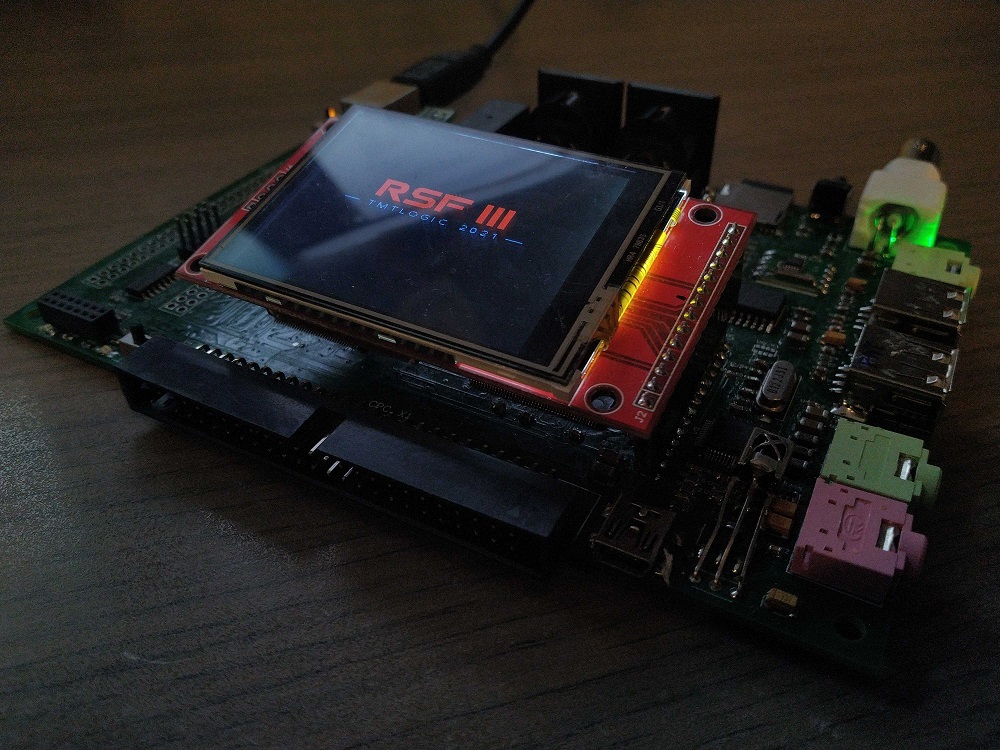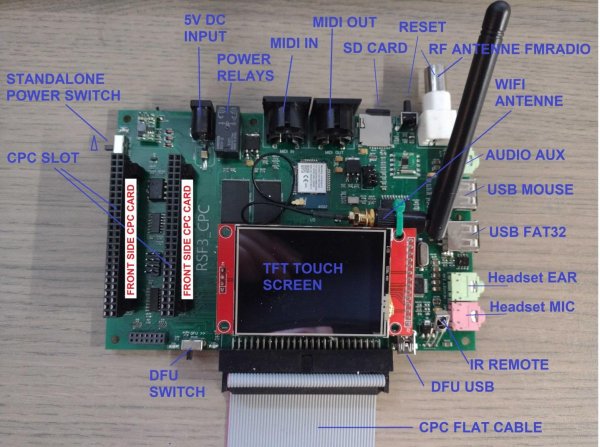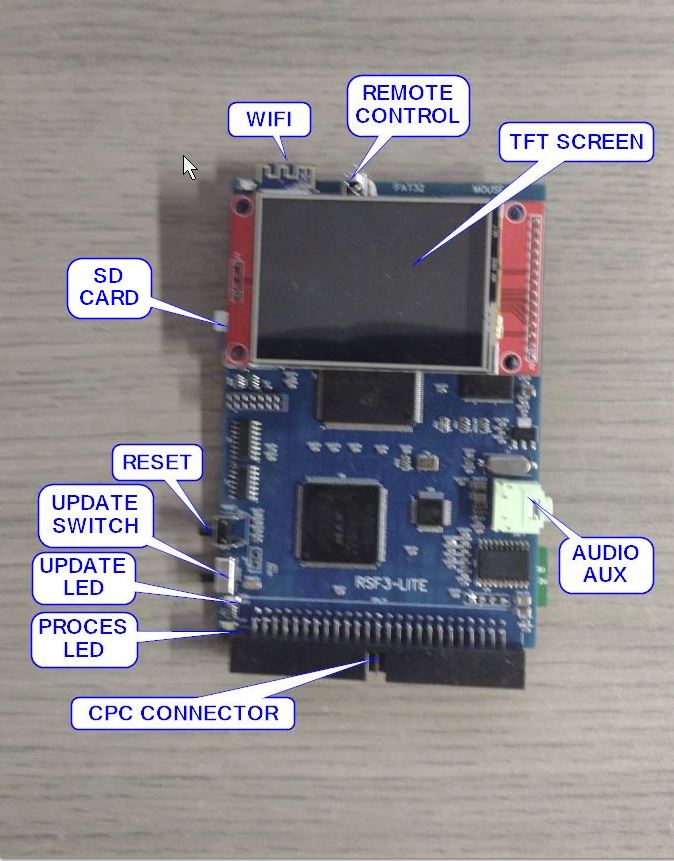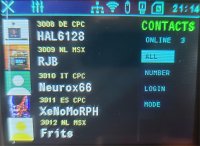RSF3
From CPCWiki - THE Amstrad CPC encyclopedia!
This expansion card is an evolution of the Symbiface 3.
Contents
[hide]Features
- 2 MB RAM.
- 2 MB ROM.
- TFT touch screen with stylus.
- 480 MHz 2-core processor.
- USB port for storage.
- USB port for mouse (MultiPlay).
- microSD port for system and settings.
- 2 slots for MX4 cards (DC3 connector).
- MP3 module + FM radio (equivalent to an MSX SE-One card).
- Output for FM radio antenna.
- Headphone & microphone input/output for VOIP.
- MIDI audio input/output.
- DAC analog audio output.
- Wifi with antenna (speed 2 MB/s).
- RTC clock for real-time date and time.
- Duke M4 Board emulation (partially).
- Infra-red port.
- Reset button.
Parameters available during the initialization
- Activation of a chime at startup: ON/OFF.
- Pen sound on touch screen: ON/OFF.
- Activation of the integrated 2 MB memory expansion: ON/OFF. Function that can be deactivated if an application or game is not compatible. Or if you want to use another memory extension on an MX4 slot. Warning: do not activate the integrated 2 MB memory extension of the RSF3, at the same time as another external memory extension on an MX4 slot.
- 464 Memory hack: ON/OFF. If RSF3 is used on a CPC 464, use the patch by @ToTO to take into account the memory extension.
- Substitution of ROM 7: ON/OFF Allows you to replace the original Amsdos ROM 7 with another stored on the RSF3. Warning: not compatible with all CPCs. May cause hardware conflict with Z80 data bus.
- SE-One: ON/OFF. Allows you to activate the emulation of the MSX SE-One card, which offers an MP3 decoder (with playback of other formats such as AAC, MP4, M4A, WMA, WAV, MID, OGG) + an FM radio.
- Symbiface II: ON/OFF. Allows you to activate or not the compatibility mode with the Symbiface II.
- Multiplay mouse: ON/OFF. Allows you to enable or disable USB mouse support.
- GMT time zone: to set the time offset, based on the time zone.
Miscellaneous
The RSF3 also contains the following elements:
- Emulation of older interfaces like the Amstrad SSA-1 Speech Synthesizer, the Amdrum, and the Digiblaster. With programs for each of these interfaces to use them.
- Emulation of all the functionalities (SID, MP3, MIDI, FM radio, web radio) of the Amsdap SE-One.
- A "System Information" application which summarizes the detailed information of the RSF3 (firmware version, Wifi and network information, activated rombank and list of roms with their positions, the activation status/or not of the M4, the SE -One, CPC 464 hack, Multiplay, SF2, etc.
- A drawing application for the stylus.
- A “Post-it” application to write whatever you want, like a memory aid.
The 2 MX4 slots are more than sufficient given that with the RSF3 you don't need to have as many as a Mother X4 given that it already includes:
- a 2 MB memory extension (can be deactivated if necessary): no need to add another one.
- 255 rombanks: no need to add a rombank.
- M4 Board emulation: no need to add the card of the same name.
- Hacker v7.0 in a dedicated rombank: no need to add the card of the same name.
- support for a USB mouse: no need to add a Multiplay or an Albireo.
- an RTC clock: no need to add a Nova extension or equivalent.
- emulation of old audio devices/cards, etc.
RSF3 Lite
TMTLOGIC discontinued the RSF3, but continues with the RSF3 Lite, which offers almost the same features (the ones removed from the original RSF3 were ultimately little used). Source
Characteristics, in comparaison with the RSF3:
- No MX4 slots
- Only 1 MB RAM
- Only 1 MB ROM
- No FM radio
- No VOIP
- No MIDI I/O
- Integrated internal Wifi antenna
TMTNET
The RSF3 / RSF3 Lite supports also TMTNET networking (@TMTLOGIC)! Which allows between computers :
- multiplayer gaming.
- real-time text messaging.
- real-time voice communication (like Skype or Teams)
- all between different machines : Amstrad CPC, MSX, Enterprise 64 and 128, Amstrad PCW, Sega SC-3000, Philips P2000 !
Links
- Topic on CPCRulez forum (FR) CPCWiki forum
- TMTLOGIC The development team behind the RSF3
- TMTLOGIC gdrive repo
- RSF3 Symbiface3 manual
- SE-One manual The RSF3 fully integrates the SE-One audio capabilities



